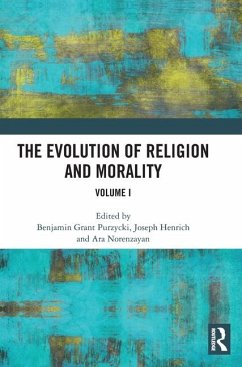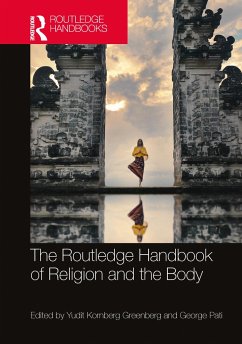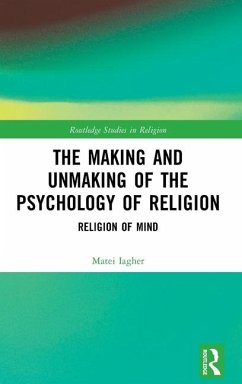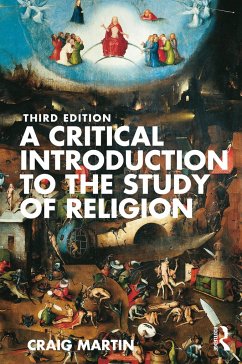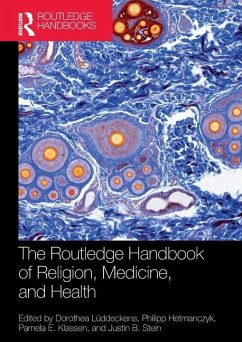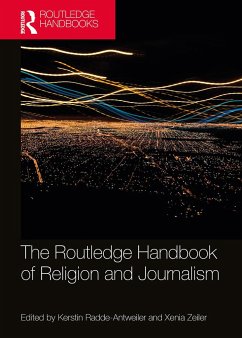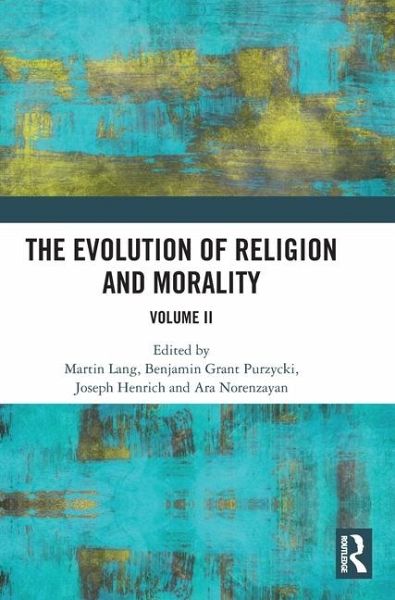
The Evolution of Religion and Morality
Volume II
Herausgegeben: Lang, Martin; Purzycki, Benjamin Grant; Henrich, Joseph; Norenzayan, Ara
Versandkostenfrei!
Versandfertig in 6-10 Tagen
154,99 €
inkl. MwSt.

PAYBACK Punkte
77 °P sammeln!
This volume draws on a unique dataset to answer pressing questions about human religiosity. Building upon the first volume in this series, it presents results from the second phase of the Evolution of Religion and Morality (ERM) project.The second volume investigates key questions in the evolutionary and cognitive sciences of religion and highlights cultural variability and context specificity of diverse religious systems. Chapters draw on a dataset comprising 2,228 participants from 15 ethnographically diverse societies that stretch from Africa and India through Oceania to South America, and ...
This volume draws on a unique dataset to answer pressing questions about human religiosity. Building upon the first volume in this series, it presents results from the second phase of the Evolution of Religion and Morality (ERM) project.
The second volume investigates key questions in the evolutionary and cognitive sciences of religion and highlights cultural variability and context specificity of diverse religious systems. Chapters draw on a dataset comprising 2,228 participants from 15 ethnographically diverse societies that stretch from Africa and India through Oceania to South America, and include hunter-gatherers, pastoralists, horticulturalists, subsistence farmers and wage laborers. Four chapters using the full dataset answer the following questions:
What are the general predictors of commitment to supernatural agents?Is there a gender gap in religiosity?Does belief in punitive gods facilitates cooperation?Are supernatural agents implicitly associated with moral concerns?
Chapters from individual field sites further explore the distinction between moralizing and local gods, the potentially disruptive role of belief in local gods on cooperation with anonymous co-religionists, and the relationship between belief in moralizing gods, cooperation, and differential access to material resources. Above these empirical studies, the book also includes an informed discussion with specialists on the challenges of running such a large cross-cultural project and gives concrete recommendations for future projects.
The Evolution of Religion and Morality: Volume II will be a key resource for scholars and researchers of religious studies, human evolutionary biology, psychology, anthropology, the cultural evolution of religion and the sociology of religion. This book was originally published as a special issue of Religion, Brain & Behavior.
The second volume investigates key questions in the evolutionary and cognitive sciences of religion and highlights cultural variability and context specificity of diverse religious systems. Chapters draw on a dataset comprising 2,228 participants from 15 ethnographically diverse societies that stretch from Africa and India through Oceania to South America, and include hunter-gatherers, pastoralists, horticulturalists, subsistence farmers and wage laborers. Four chapters using the full dataset answer the following questions:
What are the general predictors of commitment to supernatural agents?Is there a gender gap in religiosity?Does belief in punitive gods facilitates cooperation?Are supernatural agents implicitly associated with moral concerns?
Chapters from individual field sites further explore the distinction between moralizing and local gods, the potentially disruptive role of belief in local gods on cooperation with anonymous co-religionists, and the relationship between belief in moralizing gods, cooperation, and differential access to material resources. Above these empirical studies, the book also includes an informed discussion with specialists on the challenges of running such a large cross-cultural project and gives concrete recommendations for future projects.
The Evolution of Religion and Morality: Volume II will be a key resource for scholars and researchers of religious studies, human evolutionary biology, psychology, anthropology, the cultural evolution of religion and the sociology of religion. This book was originally published as a special issue of Religion, Brain & Behavior.





